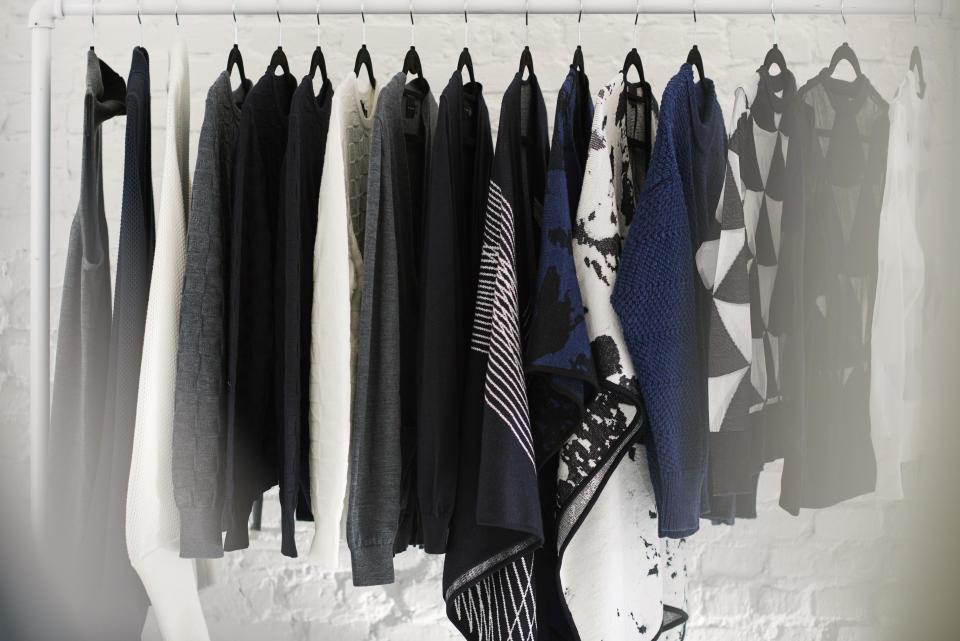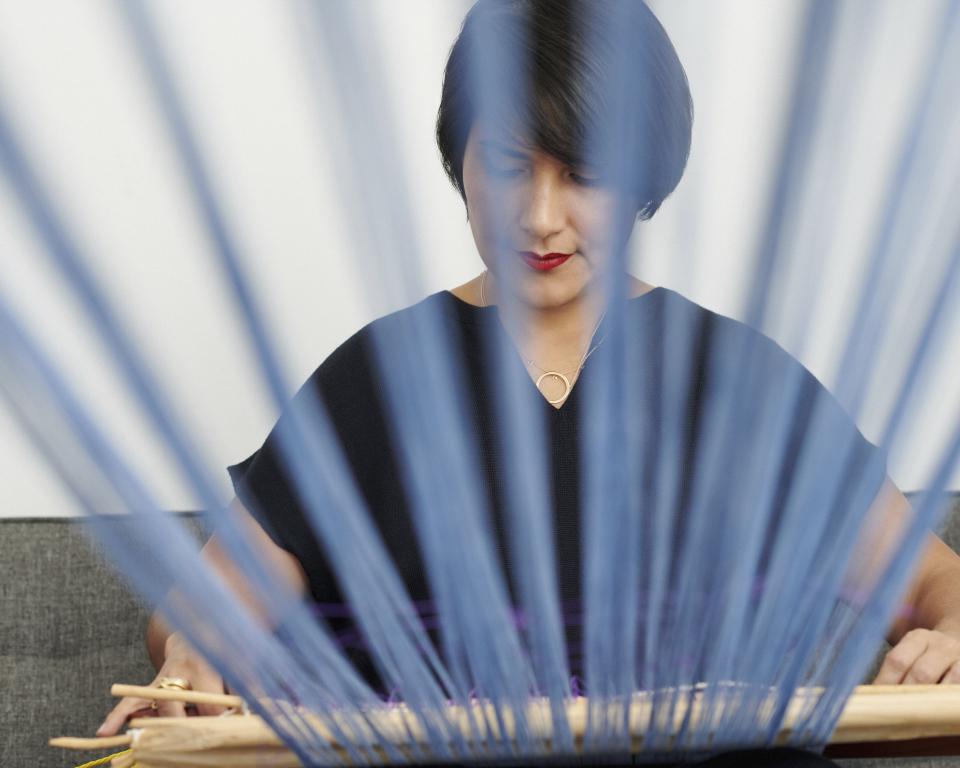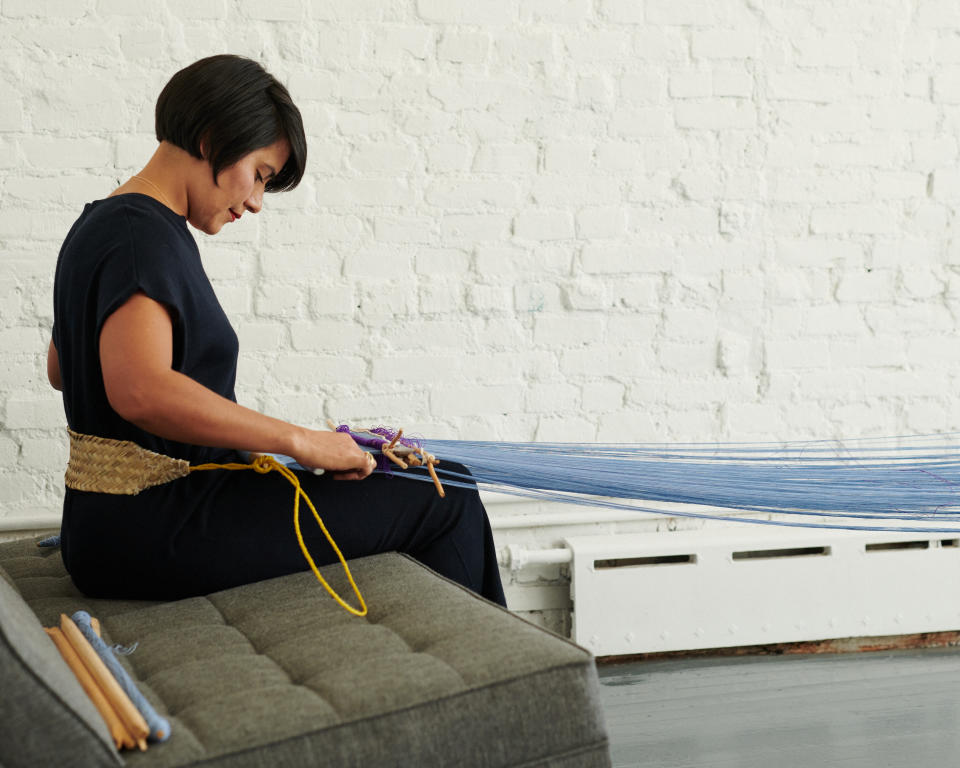Meet the Artisanal Brand Shirking Fast Fashion in Favor of Drops Aligned With the Full Moon

More and more, micro brands are giving a face to what fashion could look like.
Smaller, better, slower and right in line with demand. A bit like a return to the olden days before mass production began.
More from WWD
One Brooklyn-based womenswear brand, named for its founder Paola Hernandez, is rebranding itself as a label that prizes an unpressured creative process and a drop model that couldn’t be more in tune with the natural order of things: It follows the full moon.
“I always like full moon and femininity and full moon ceremonies. I feel like the full moon is a cycle that allows for an intention to be born and then be manifested at the time of the full moon,” Hernandez told WWD via Zoom from her studio in Williamsburg, Brooklyn. “It’s really organic and sustainable for me to think of releasing a piece every full moon because it’s doable, it’s not stressful.”

Paola Hernandez
With this approach, Hernandez makes a small range of knits — some produced in Los Angeles, some with artisans in Oaxaca, Mexico, some knit by the designer herself; ponchos hand-dyed with indigo in the brand’s Brooklyn studio; silk cape dresses, and other frocks with easy-chic silhouettes. It’s an edit she sells direct-to-consumer that eliminates fashion’s frantic chase of more for more’s sake.
“It feels like it’s more focused and it could be deep,” she said. “It’s a little bit more like poetry instead of a novel.”
Pieces in the collection range in price from $50 for a knit headband to $680 for an indigo-dyed huipil. Hernandez keeps a small inventory of items each month so they’re available at the point of purchase, and only orders or makes more “if there’s enough interest,” meaning there’s very little waste in the process.
The slow-fashion focus allows for the focused creativity that sometimes gets squeezed out amidst the frenzied fashion calendar. And because Hernandez thinks of her pieces similarly to the way some people think of jewelry — like an heirloom that can be worn and loved and still passed on to the next generation (and one that’s classic enough to remain relevant) — she’s able to invest accordingly in seeing them sustain over time.
“When you slow down you’re able to enjoy life in a more profound way. And in the same way, when you focus more on slow fashion, I feel like then you can really put all the details into the pieces for them to be exactly the way you wanted them to be, for them to be comfortable, for them to be detailed, for them to be special, for them to have a concept,” she said. “As a consumer, people can also appreciate that and buy clothes that have more meaning and really nice materials and that are really well thought of. So instead of having 100 things in your closet, you could have 10 that are really special.”

Paola Hernandez
The forced slowdown of the pandemic created space for the designer to teach herself how to make machine knits. She learned how to hand knit as a child from her maternal grandmother (who appears in some of the brand’s marketing), but wanted to be able to speak the same language as the factories she works with or the weavers in Oaxaca.
“I started making samples using my whole body, which was a whole new experience for me because I’m usually kind of visual and more in my mind and that’s where I envision my collections, my ideas, my concepts. But being able to just work with my entire body knitting brought a different presence to the pieces,” Hernandez said. “And also, I could make changes as they were coming along rather than receive a final sample and then say, ‘OK, these are the changes’ back and forth.
“In a way it also feels less wasteful — wasteful of time and wasteful of material, so I kind of like that because my brand is also about being conscious and with that being sustainable is important,” she added.
Along with consciousness and sustainability, “ancestral wisdom” is a key ingredient in Paola Hernandez pieces.
“From my grandmother it also opened a window, like I want to learn more of these traditional ways of making clothes,” the designer said.

That’s what led her to artisans in Oaxaca, to both buy from them and learn from them about clothing made using a traditional backstrap loom. But the Mexican-born and raised designer is focused on partnership, not appropriating for profit, as many in fashion have increasingly begun to take heat for.
“These artisans are also creators. So it’s almost the same idea as if I was a designer and another designer copied my idea and just profited out of it…The artisans are also creative people and their techniques are ancient and they should be also valued and taken into account,” Hernandez said. “It would be better if they could be included in that creative process and they could be honored and they could also be almost mentors to these ideas of contemporary designers.”
It’s a human-centric model that’s easy to display when you’re a small brand who can call those who work with you by name, and that’s working to reverse out of the fast-fashion cycle and put purpose first.
“I don’t support [fast fashion] because there’s a lot of wasting, polluting. Instead of purposeful it’s the opposite — a lot with no purpose,” she said. “In general, it’s kind of a little toxic. Toxic for the environment, toxic for the consumers, toxic for the people that work there, too. In general, they’re not even making a good salary and they’re working like 13 hours per day, go, go, go, and I feel like that’s not healthy for anyone involved.
“It would be nice to think that the whole world could switch into slowing down.”
Sign up for WWD's Newsletter. For the latest news, follow us on Twitter, Facebook, and Instagram.
